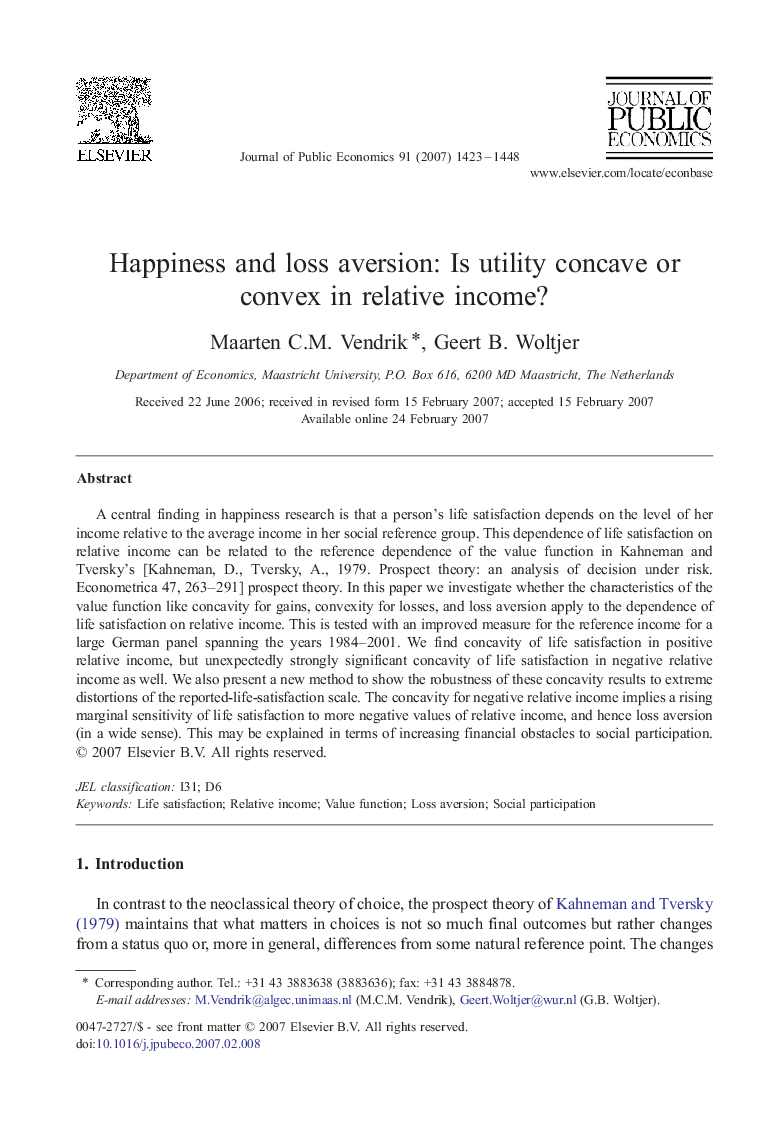| Article ID | Journal | Published Year | Pages | File Type |
|---|---|---|---|---|
| 969506 | Journal of Public Economics | 2007 | 26 Pages |
A central finding in happiness research is that a person's life satisfaction depends on the level of her income relative to the average income in her social reference group. This dependence of life satisfaction on relative income can be related to the reference dependence of the value function in Kahneman and Tversky's [Kahneman, D., Tversky, A., 1979. Prospect theory: an analysis of decision under risk. Econometrica 47, 263–291] prospect theory. In this paper we investigate whether the characteristics of the value function like concavity for gains, convexity for losses, and loss aversion apply to the dependence of life satisfaction on relative income. This is tested with an improved measure for the reference income for a large German panel spanning the years 1984–2001. We find concavity of life satisfaction in positive relative income, but unexpectedly strongly significant concavity of life satisfaction in negative relative income as well. We also present a new method to show the robustness of these concavity results to extreme distortions of the reported-life-satisfaction scale. The concavity for negative relative income implies a rising marginal sensitivity of life satisfaction to more negative values of relative income, and hence loss aversion (in a wide sense). This may be explained in terms of increasing financial obstacles to social participation.
